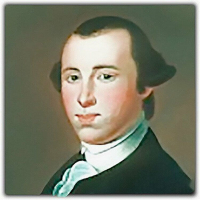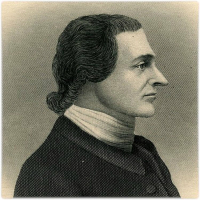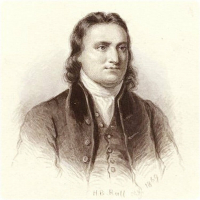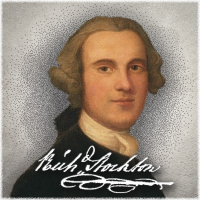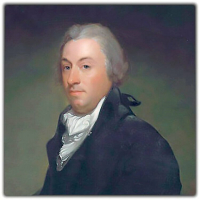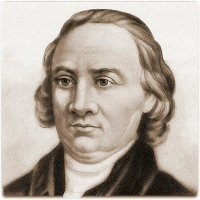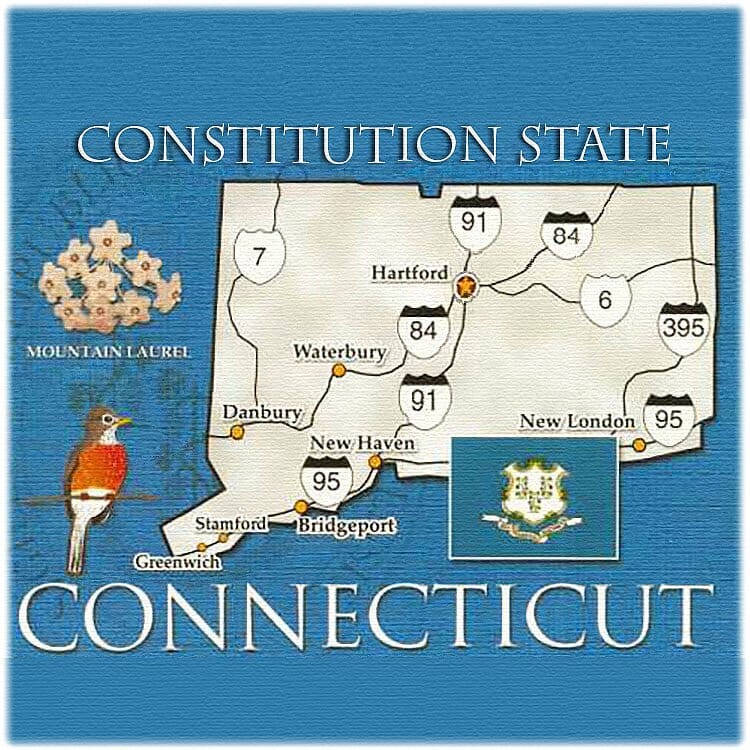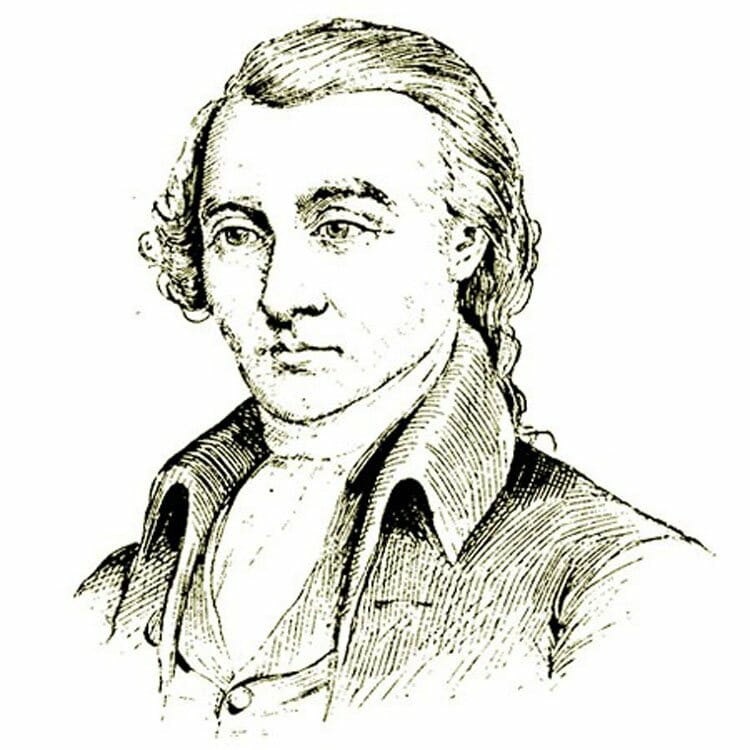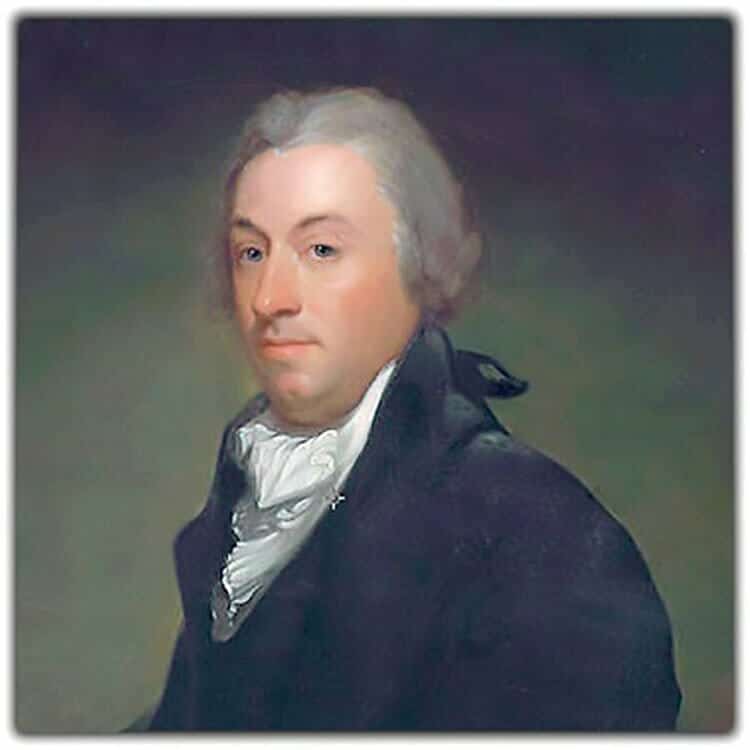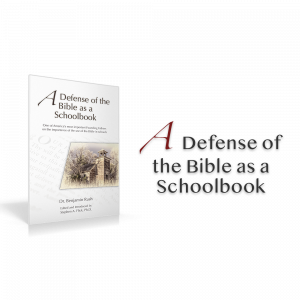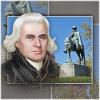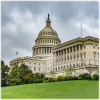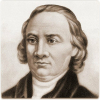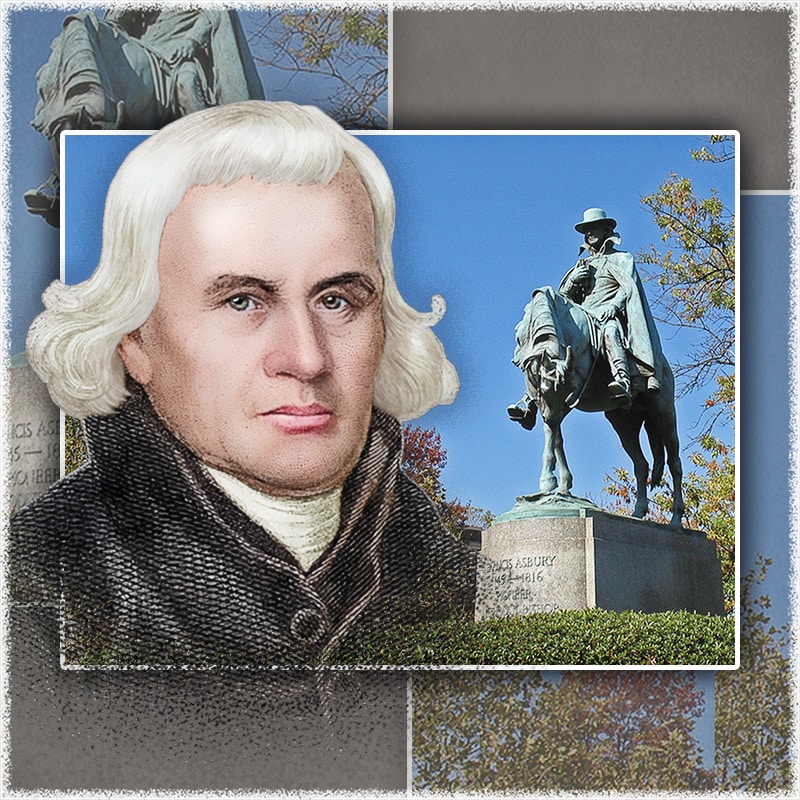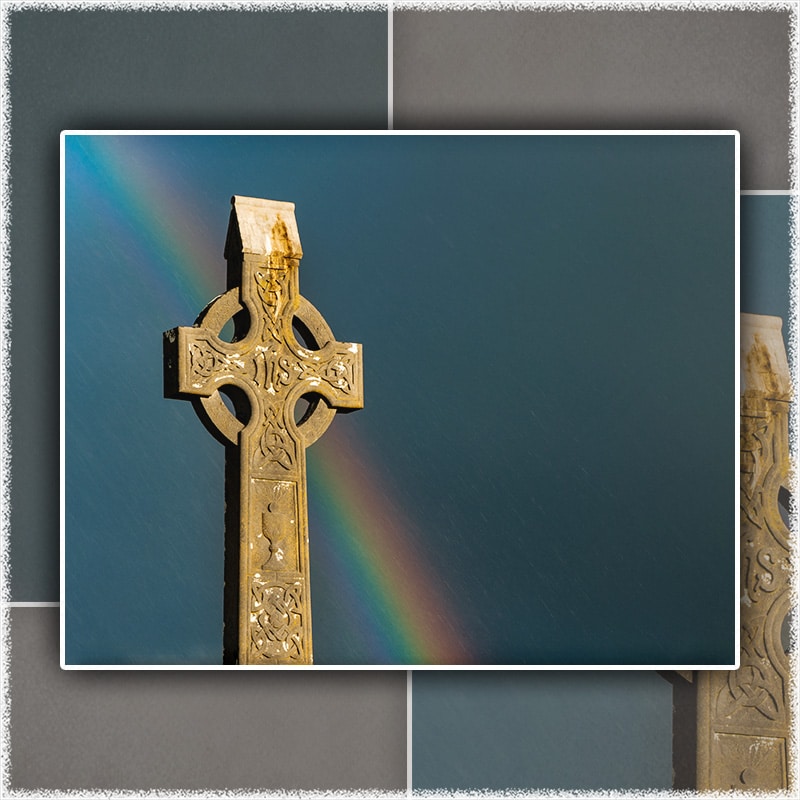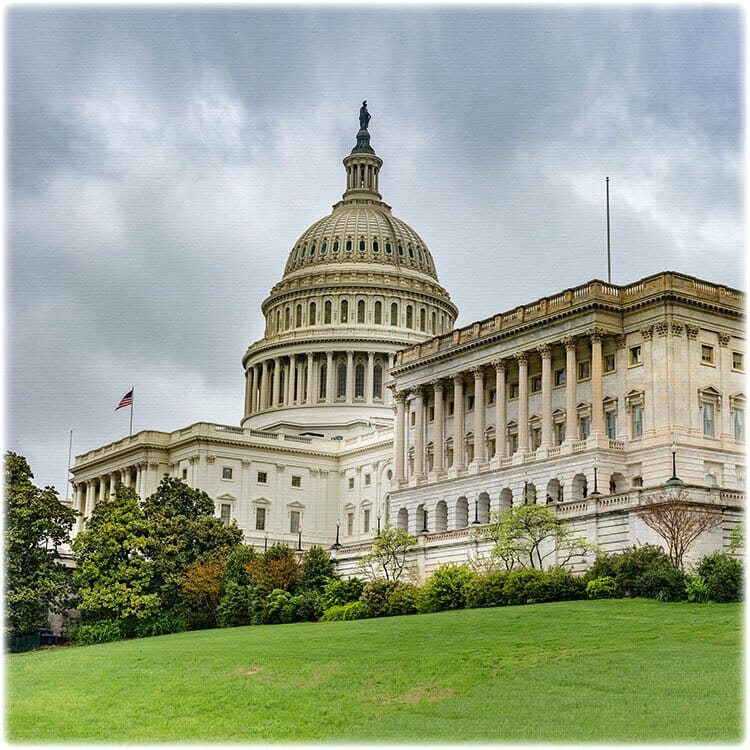Edward Rutledge (November 23, 1749 – January 23, 1800) was an American politician and youngest signer of the United States Declaration of Independence. He later served as the 39th Governor of South Carolina. The brief biographical sketch of his life presented below is taken from the nineteenth-century work, Lives of the Signers of the Declaration of Independence by Rev.Charles Goodrich.Edward Rutledge
Article Contents
Edward Rutledge, the first of the South Carolina delegation, who affixed his name to the Declaration of Independence, was born in the city of Charleston, South Carolina on November 23, 1749. He was the youngest son of Doctor John Rutledge, who emigrated from Ireland to South Carolina, about the year 1755. His mother was Sarah Hert, a lady of respectable family, and large fortune. At the age of twenty-seven, she became a widow with seven children. Her eldest son was John Rutledge, distinguished for his patriotic zeal during the revolution. Her youngest son was the subject of the present memoir.
Of the early years of Edward Rutledge we have little record. He was placed under the care of David Smith, of New Jersey, by whom he was instructed in the learned languages; but he appears not to have made as rapid attainments as some others, although, as a scholar, he was respectable.Edward Rutledge
Before he had devoted as much time to academic studies as would have been desirable, he commenced the study of law with his elder brother, who, at that time, was becoming the most eminent advocate at the Charleston bar. Although at this time he was still young, he was capable of appreciating the advantages that he enjoyed, and was strongly impelled to exertion, by the brilliant and successful example that his brother held constantly before him.
In 1769, at the age of twenty years, he sailed for England, to complete his legal education. He became a student at the Temple. He derived great advantage from an attendance upon the English courts, and houses of Parliament. In the latter place, he had an opportunity of listening to the eloquence of some of the most distinguished orators who lived at that day.
In 1773, he returned to his native country, and entered upon the duties of his profession. He was at this time distinguished for his quickness of apprehension, fluency of speech, and graceful delivery. Hence he early excited the admiration of those who heard him, and gave promise of that future eminence to which he was destined to arrive.
The general esteem in which he was held was evinced in 1774, by his appointment to the distinguished First Continental Congress that assembled at Philadelphia in that year. He was at this time but twenty-five years of age. It was a high honor for so young a man to be called to serve in the national council, with men of exalted powers and preeminent experience. It furnished unquestionable proof of the estimation in which he was held, and strong presumptive evidence that this estimation of his talents and moral worth was not unjust. As the proceedings of the Congress of 1774 were conducted with closed doors, and an injunction of secrecy laid upon its members, it is impossible, at this day, to ascertain the precise share of influence which the individual members exerted, on all the measures which they advocated. Mr. Rutledge was, however, with the other delegates of South Carolina, formally thanked by the provincial Congress, for the spirited and independent course he had pursued, and was again elected to the important station that he held.
In the Congress of 1776, he took an active part in the discussions that preceded the Declaration of Independence. He is said to have proposed some alterations in the original draft of that celebrated instrument, but the precise nature of them it is now impossible to ascertain. The merit of the instrument doubtless wholly belongs to Mr. Jefferson. Some alterations, indeed, were made in it; but they were chiefly verbal, while the spirit and texture remained untouched.
At a subsequent date, Mr. Rutledge was appointed, with Dr. Franklin and John Adams, as commissioners to wait upon Lord Howe, who had requested Congress to appoint such a committee to enter with him into negotiations for peace. In a former page we had occasion to allude to the appointment of these commissioners, and to state that the conference was productive of no beneficial results.
On the breaking up of the conference, Lord Howe dispatched his own barge to convey the commissioners from Long Island to New York. A little before reaching the shore, Doctor Franklin, putting his hand in his pocket, began chinking some gold and silver coin. This, when about leaving the boat, he offered to the sailors, who had rowed it. The British officer, however, who commanded the boat, prohibited the sailors from accepting it. After the departure of the boat, one of the commissioners inquired why he had offered money to the sailors. "Why," said the doctor, in reply, "the British think we have no hard money in the colonies, and I thought (would show them to the contrary. I risked nothing," added he, "for I knew that the sailors would not be permitted to accept it." Mr. Rutledge was again appointed to Congress, in the year 1779, but in consequence of ill health he was unable to reach the seat of government, and returned home. In 1780, during the investment of Charleston by the British, Mr. Rutledge was taken prisoner by the enemy, and sent to St. Augustine as a prisoner, where he was detained nearly a year before he was exchanged. Soon after his exchange was affected, he landed at Philadelphia, near which he resided, until a short time before the city of Charleston was evacuated by the British, when he returned to the place of his nativity, and to the enjoyment of the society of his friends and relations.
From this period, for the space of seventeen years, Mr. Rutledge was successfully engaged in the practice of his profession, and from time to time in important services that he rendered to the state, as a member of her legislature.
In 1798, he relinquished his station at the bar, and was elected the chief magistrate of South Carolina. His constitution, however, became much impaired in consequence of severe and repeated attacks of the gout, to which he was subject. He continued, however, to perform his official duties until within a short time before his death. This event is supposed to have been somewhat hastened, by a necessary attendance upon the sitting of the legislature at Columbia, and an unfortunate exposure to rain and cold during his return from the latter place to Charleston. On reaching home, he was confined by a severe illness, which terminated his life on January 23, 1800.
The death of Mr. Rutledge was felt to be a severe loss, both by the people of Charleston and by the state at large. Few men were more deservedly respected; no one could be more generally beloved. Military and other funeral honors were paid to him on the occasion of his being carried to his long home; and the universal regret expressed at his departure, showed full well how sincerely he was lamented.
Both in his public and private character, Mr. Rutledge was adorned with many virtues. In his disposition, he was uncommonly benevolent; he entered with great feeling into the sufferings of his fellow men, and felt it not only his duty, but his pleasure, to administer to their necessities. His deeds of kindness were many, were widely extended, and are still remembered with affection and gratitude.
As an orator, he was deservedly eminent. He had faults, indeed, both in point of manner and style, being too studied in respect to the former, and too metaphorical, and sometimes inaccurate, in respect to the latter. He also, it is said, addressed himself rather to the passions than to the understanding; yet, with these faults there were few speakers who commanded greater attention, or were more successful. He was less impetuous, and perhaps less commanding, than his brother John Rutledge; but he possessed more of the style of Cicero. There was suavity in his manner, a conciliatory attraction in his arguments, which had frequently the effect of subduing the prejudices of the unfriendly, and which seldom failed to increase the ardor and inflexibility of steady friends. The eloquence of John Rutledge, like that of Patrick Henry of Virginia, was as a mountain torrent; that of Edward Rutledge, that of a smooth stream gliding along the plain; the former hurried you forward with a resistless impetuosity; the latter conducted you with fascinations, that made every progressive step appear enchanting.
In his person, Mr. Rutledge was above the middle size, and of a florid, but fair complexion. His countenance expressed great animation; and, on account of his intelligent and benevolent aspect, was universally admired. On his return from Europe, Mr. Rutledge married the daughter of Henry Middleton, by whom he left a son, Major Henry M. Rutledge, of Tennessee; and a daughter, who, it is believed, now resides at Charleston. Upon the death of his first wife, he married the widow of Nicholas Eveleigh, comptroller of the treasury of the United States, in the time of Washington's administration.[1]
America deserves to know its true heritage.
Please contribute today!
"Anchor Elements" are concepts, events, individuals, terms, or other important components that are featured in this article and which act as authoritative reference points for use in other articles throughout our site.
Edward Rutledge
[1] Orthography slightly updated. Rev.Charles A. Goodrich, Lives of the Signers to the Declaration of Independence, 5th ed. (New York: Thomas Mather, 1836), 436-440.


